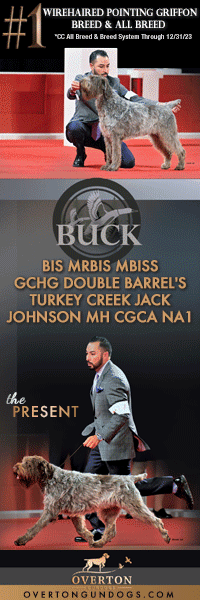Statement From The University of Florida College of Veterinary Medicine Regarding Canine Influenza H3N2
UF College of Veterinary Medicine
2015 SW 16th Ave. · Gainesville, FL 32610 (352) 392-2235UF College of Veterinary Medicine officials have confirmed more than one dozen cases of canine influenza A virus, a.k.a. “dog flu.” The first twelve dogs tested have been confirmed with the strain of influenza A known as H3N2 CIV. Dogs testing positive for the H3N2 strain were either at the Perry, Georgia dog show May 19-21 or the Deland, Florida dog show the following weekend, or were exposed to dogs who were present at these shows. This is the same strain responsible for the severe outbreak of canine influenza in Chicago in 2015.
Veterinarians in central and north Florida are treating many dogs that are suspected to have dog flu. All dogs being treated are in stable condition. Common symptoms of dog flu include sneezing, nasal discharge and frequent coughing. If your dog exhibits any of these symptoms, please call your pet’s veterinarian before taking your pet in for treatment.
There is no evidence that H3N2 canine influenza virus infects humans. Information for pet owners and for veterinarians is available on the UF Veterinary Hospitals website at http://hospitals.vetmed.ufl.edu/canine-influenza/.
H3N2 CANINE INFLUENZA VIRUS FACT SHEET
What is H3N2 Canine Influenza Virus?
H3N2 canine influenza virus (H3N2 CIV) is a very contagious influenza virus that infects dogs. This virus recently emerged in the US in 2015. It has already infected thousands of dogs in more than 30 states. H3N2 CIV has also infected cats but there is no evidence that it can infect people.
What does H3N2 CIV cause?
H3N2 CIV causes a respiratory infection in dogs that is also known as “dog flu”. Common symptoms include sneezing, nasal discharge, and frequent coughing that can last for 2 weeks or more. Many dogs have a fever, decreased appetite, and lethargy during the first few days of illness. Some dogs have more serious disease and pneumonia that requires hospital care. H3N2 CIV can cause respiratory infections in cats too. The cats start sneezing and have nasal discharge but usually do not cough.
How do dogs get H3N2 CIV infection?
H3N2 CIV is spread by direct contact with a sick dog and by contact with an environment or people that are contaminated with the virus. Coughing dogs produce invisible virus?containing mists that travel more than 20 feet in the air, facilitating rapid spread of virus over distances. This type of virus transmission contributes to a rapid increase in coughing dogs in a kennel situation. The virus can survive in the environment (kennel surfaces, food/water bowls, collars/ leashes, toys, beds) or on people’s clothing and hands for 12 to 24 hours before it dies. It is easily killed by handwashing with soap and water, normal laundering of clothing and bedding, and washing food/water bowls and toys with soap and water
What dogs are at risk for H3N2 CIV?
Most dogs do not have immunity to H3N2 CIV. This means that dogs of any breed, age or health status will likely be infected if they are exposed to the virus. Dogs at most risk for exposure are those with a social lifestyle and participate in group events or are housed in communal facilities, especially in communities where H3N2 CIV is circulating. This includes dogs in boarding kennels, day care centers, shelters, dog shows, veterinary clinics, pet stores, grooming parlors, etc. Dogs that mostly stay at home and walk around the neighborhood are at low risk.
What should I do if my dog has canine flu symptoms?
First of all, your dog may have a respiratory infection caused by other respiratory viruses and not H3N2 CIV. This can only be determined by a diagnostic test performed by your veterinarian. Here are the important steps to follow:
- Call your veterinarian. Do not go to the clinic without calling first. Your dog may have a very contagious infection that can easily spread to other dogs in the clinic.
- Tell the veterinarian the following information:
- Your dog’s symptoms and when they started.
- If your dog has been to a dog show, boarding facility, dog day care center, dog park, groomingparlor, or another event with other dogs within the past week.
- If your dog was around coughing dogs in the past week.
- The veterinarian will provide specific instructions on when and how to see your dog.
- Talk with your veterinarian about performing a diagnostic test to determine if your dog has the flu virusor another virus. This is very important to the care of your dog. The test is performed on swabs of the nose and throat that are submitted to an outside laboratory.
What if my dog is diagnosed with H3N2 CIV?
Most dogs recover at home without any complications. The most important aspect of home care is to keep your dog isolated from all other dogs for 4 weeks. While dogs recover from illness in about 2 weeks, they can remain contagious to other dogs for up to 4 weeks. If you have other dogs or cats in the house, then all of them must be isolated in the home for 4 weeks. Your veterinarian will provide instructions on how to monitor the health of all the pets and when to call about concerns.
About 20% of dogs can progress to pneumonia. Dogs with pneumonia typically have decreased appetite, are very lethargic, and may have labored breathing. Call your veterinarian if you see these signs. These dogs likely need special hospital care for recovery. Fortunately, the mortality rate for H3N2 CIV is low.
What can I do to protect my dog against H3N2 CIV?
You should also remain aware of any information about confirmed documentation of H3N2 CIV in your community or communities where you take your dog. If this virus is present in the community, then be careful about exposing your dog to events or facilities with other dogs. Knowledge and common sense are your best defenses against canine influenza.
The most important step is to vaccinate your dog against the canine influenza viruses. Just like human flu vaccines, the H3N2 CIV vaccine may not completely prevent infection but will make it less likely. Additionally, if a vaccinated dog does get infected, the disease is likely to be more mild and of shorter duration. The vaccine can also protect against pneumonia. Talk to your veterinarian about vaccination against H3N2 CIV and other canine influenza viruses.
Short URL: http://caninechronicle.com/?p=126247
Comments are closed












